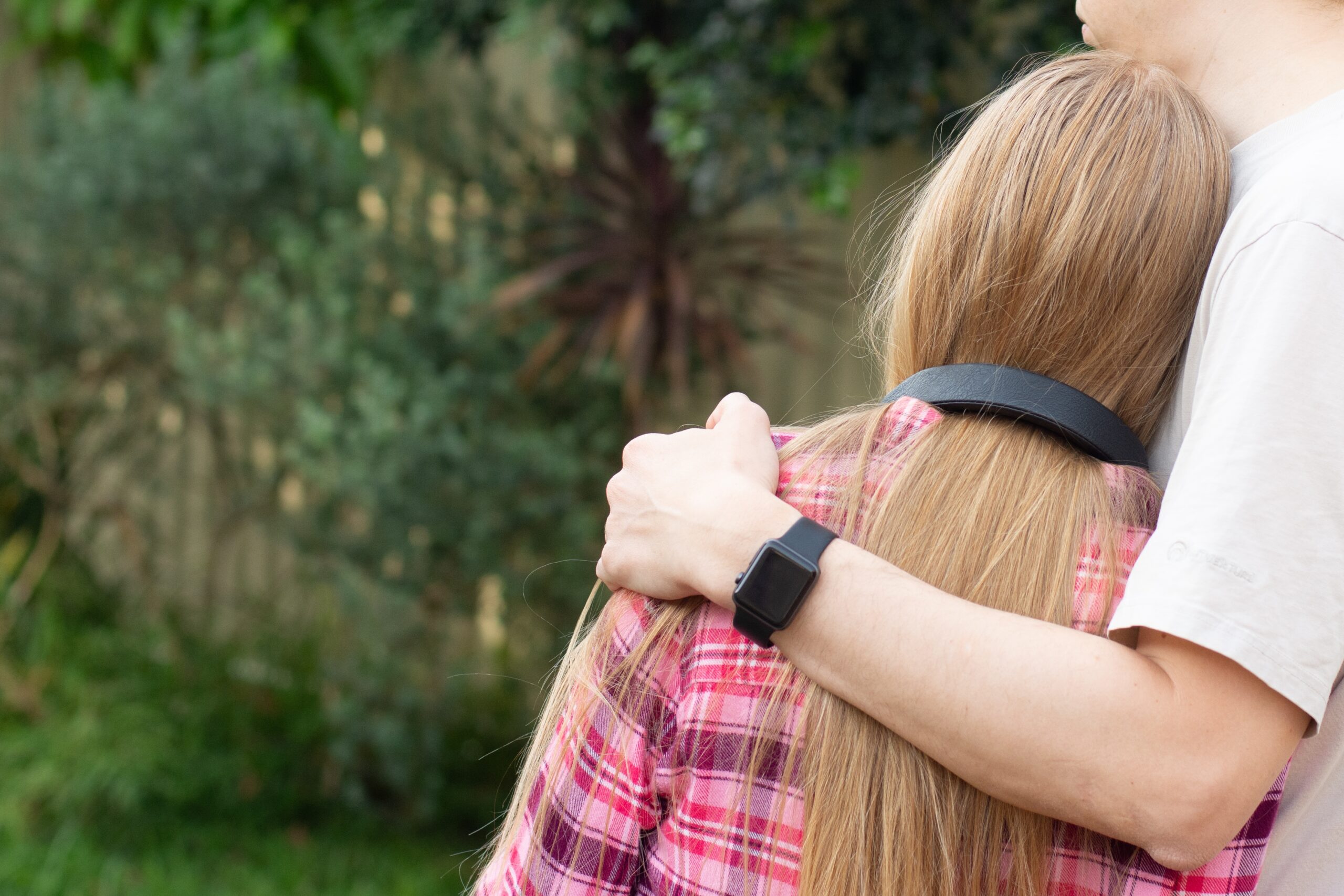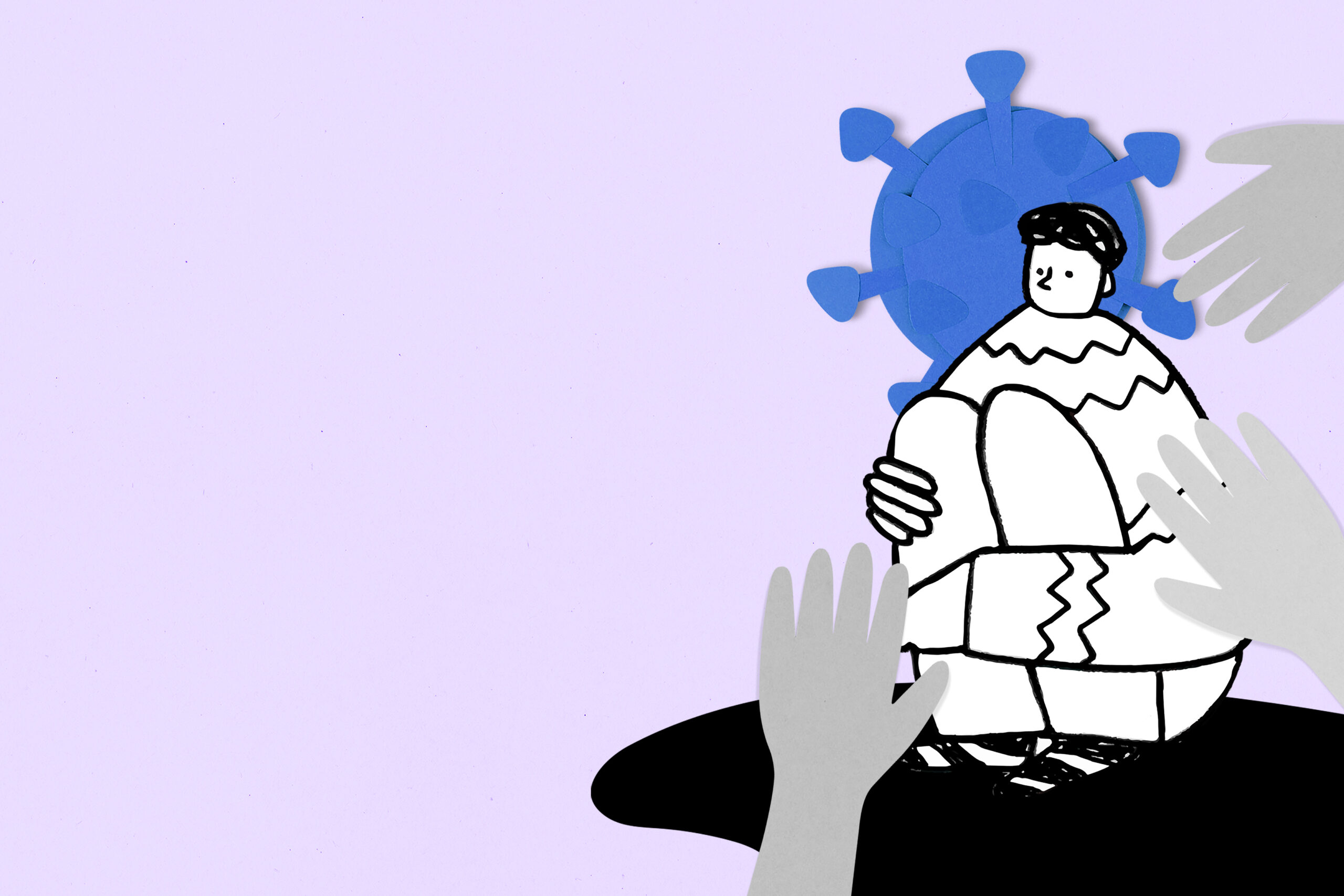In my work with parents, adolescents and children, self-harm continues to be a common theme that continues to emerge further. Self-harm may be a very distressing experience for all the family. I tend to encounter adolescents who are experiencing great pain and angst, as well as parents who are shocked, confused and lost on what to do. In this blog, I will focus on what self-harm may encompass, the experience of parents, tips for parents to support their adolescents who carry out self-harm and the importance of reaching out for further therapeutic support.

What is self-harm?
Self-harm may be described as any harm inflicted on oneself with the intention of causing pain. This may include scratching, biting, burning, cutting and substance misuse. Self-harm is different from suicidal ideations and suicide since self-harm is usually carried out with the intention of releasing distress in the short-term to cope with overwhelming emotions. Having said this, in more complex circumstances, self-harm may still relate to suicidal ideations and suicide. All forms of self-harm need to be taken seriously and seeking preventative support and/or early intervention is pivotal.

Adolescents who self-harm generally experience intense emotional distress and have difficulty when it comes to emotional regulation, containment and coping with feelings. Adolescents express a feeling of ‘release’ once they engage in self-harm, a release from intense tension, pain and sadness. Many a time self-harm helps to mask the deeper pain beneath the surface, and it can be seen as a form of escapism from the significantly overbearing emotions. The physical pain becomes a temporary distraction from the emotional pain and a vicious cycle of escapism develops.
Self-harm may also contribute to increased distancing and isolation from real relationships. It also underlines the negative self-belief of not being worthy of love, care, patience and help. Self-harm can also be seen as a form of punishment inflicted on oneself, which continues to perpetuate the negative cycle of unhelpful coping with emotions. Moreover, self-harm may also be a desperate means to re-gain some form of control over a situation in life which seems uncontrollable, unpredictable or unbearable.
At times, self-harm may be seen as a cry for help, a cry to be seen and a cry for connection. It is very important to reach out to others and to support the person who is self-harming to seek help. A lot of help is available, and change is possible. It begins with a clear step forward to love oneself and to develop a life that is worth living based on healthy relationships as well as support.

What signs of distress could adolescents show when they are self-harming?
Self-harm is not always easy to detect, as it generally comes with a lot of shame and overwhelming emotions, such as sadness, loneliness, grief and anxiety as amongst others. Additionally, adolescents may feel ashamed to open up about their tendency to self-harm. Thus, some parents may be oblivious to what is going on in their adolescents’ lives. This is why a secure and genuine parent-adolescent relationship is so crucial. Communicating with adolescents in a non-judgmental and open way may help them to feel safer in disclosing their thoughts, feelings and struggles.
Some signs of possible self-harm may include an increase in withdrawn behaviour, avoiding interactions with friends and family, covering up more with long sleeved clothes, unexplained physical marks like burns, cuts or bruises, blood stains on clothes and tissues stained with blood, increased feelings of sadness, lack of interest in pursuing activities which used to bring about joy, low motivation in general, increased isolation as well as feelings of failure, anger and hopelessness amongst others.
As parents it is crucial to keep in mind the connection between the mind and the body. Self-harm may be connected with mental health issues and problems with emotional, as well as relational, wellbeing. Indeed, vulnerability to self-harm may arise due to various individual, family-related and social factors, such as a low self-esteem, bullying issues, eating disorders, family conflict, substance misuse, abuse, social media influences and others. Self-harm is only the tip of the iceberg, where underlying this behaviour there is always something negatively influencing the adolescents’ wellbeing. Discovering what is going on, as on a deeper level, especially through therapy will help with investing in better emotional wellbeing.

What can parents do once they discover that their adolescents are self-harming?
From my therapeutic experience, many parents experience feelings of shock, disbelief, sadness, guilt, anger and confusion once they discover that their adolescents are engaging in self-harm. This mixture of emotions may be very overwhelming, and it is important that parents find a safe space in order to be able to process and to manage these feelings. Those parents who can process, reflect and cope with these challenging emotions and relationship struggles are more likely to become a source of support and containment for their adolescents. As parents, it may be helpful to keep in mind the great extent of how much the adolescents may be struggling to engage in such self-harming behaviour. Adolescents may further benefit from more support so as to be able to learn healthier means of coping. Hence, remaining calm (as much as possible), as well as loving and always being open for communication is in itself very valuable.
For parents to be a source of support for their adolescents, they must first be in a stable and secure place themselves, where they can take good care of their own needs and replenish their energy. Parents are encouraged to engage in activities that they enjoy doing, together with taking time off work, exercising, eating healthy, sleeping well, having a support network, and maintaining positive coping skills for distressing emotions. Deciding to go to therapy may also be a way of self-care and good modelling behaviour for their adolescents.

So, apart from remaining as calm as possible, what else can parents do in order to support their adolescents?
Adolescents thrive on emotional support. It is helpful to show your adolescents that you are there for them, no matter what, and that you are physically, as well as emotionally, available to talk. Do not fear technological devices. Within today’s generation sometimes adolescents may find it easier to talk and to open up about their struggles by messaging you through their mobile phones or by chatting on their laptops. Leaving supportive sticky notes, highlighting your consistent presence and love for them, may also be a means of showing that they are always on your mind. Simple messages such as : “I am here for you whenever you feel the need to talk”, “I will always love you no matter what”, “You are worthy of love” and “You are not alone”, may help adolescents feel safer to start talking, or to continue talking, with you about their struggles.
Parents can model openness and honesty by being upfront about their worries and their discovery of their adolescents’ self-harming behaviour. It is important that this is done in an empathic manner, rather than in a punishing or overwhelming way. Parents can let the adolescent know that the troubles that they may be going through may seem unbearable at the moment, and that you will be there for them throughout this journey. Giving them realistic hope and acknowledging that all emotions come and go like a wave may also be most beneficial.

It may also be helpful for parents to remind their adolescents of their beauty and strengths, by telling them verbally through praise or by writing these down in a list. Such a list can be handed to the adolescents in hard times so as to remind them of how capable they are, even if they do not feel so right now. Apart from this, sometimes being together in silence and hugging can also be very soothing.
Moreover, with the assistance of a psychologist or a psychotherapist, parents may help their adolescents to come up with a plan of what they can do when they feel the urge to self-harm. Healthier coping skills to try out may include writing and journaling one’s feelings, drawing, painting, playing music, holding an ice-cube until it melts, using an elastic band on the wrist and snapping it every time the urge to self-harm re-surfaces, having a bath or a shower, intense exercises, yoga, communicating with family and friends, as well as spending time in nature and with animals. It is important to note that these coping mechanisms may not work all the time and that one must not give up.

As parents, we may have a million questions and emotions, yet it is important to take a breath, slow down and do a lot of active listening. Active listening involves listening to what the adolescents may be saying, verbally and non-verbally, and staying focused upon their feelings. They might not want you to rush to a solution or to ask a lot of questions. Instead, what they would really need is someone who listens without judgment or anger, and who is able to show them that they are lovable. Trying to understand their feelings and their different perspectives may help parents to be more empathic to what the adolescents may be going through. It may be helpful to understand the different social context that adolescents are engrained in, and that some struggles may be completely different from what we, as parents, had experienced when we were also adolescents ourselves.

Discuss with your adolescents about healthier coping methods, as well as maybe what you had struggled with when you were younger and what you had found useful. If you choose to self-disclose, make sure that you are using the self-disclosure as a means to support the adolescents and to show them your willingness to open up and to try to understand their position. Self-disclosure as parents is unhelpful when it comes from a place of venting and when it is done in an unprocessed manner. Adolescents further benefit from being validated and acknowledged in whatever experiences they are going through.
Parents may sometimes need to reassure the adolescents that they are here for them and that they are strong enough to support them. This is what being a parent is in essence – being there for them no matter what the journey. Keep in mind that self-harm is not your fault nor the adolescents’ fault. Rather, self-harm can be seen as the enemy who sometimes takes over and who needs to be controlled and stopped as soon as possible, through developing alternative means of coping.

Additionally, seeking therapeutic support further remains crucial. Therapy is helpful in increasing self-awareness, self-esteem and self-love. Consequently, adolescents may be supported so as to be able to develop better relationships with themselves and with others. Parents may also be supported therapeutically by helping them to understand what the adolescents may be going through, as well as facilitating more effective communication.

While it is important to be warm, direct and supportive when communicating about such serious issues, it is also essential to remember to have opportunities to relax and to have fun together. Not every conversation needs to be about self-harm or about the challenging experiences that one is going through. Sometimes, taking a conscious break from overwhelming emotions and experiences is in fact most beneficial for more nurturance and replenishment. This can include going out for a walk together, watching a film, going out for a snack and cooking together.
Final thoughts
As parting thoughts, I would like to emphasize the value of always being present, communicating with your adolescents on a daily basis, reflecting on your behaviour, thoughts and feelings as parents, as well as being forthcoming in a warm and genuine manner about what you are observing. Adolescents do not need perfect parents. Adolescents need good enough parents who never give up on them and who show them that they deserve to be loved. Let’s keep in mind that adolescence is a very particular and challenging period, and adolescents benefit from parents who can serve as a guiding light in darker times. It takes courage to bloom (Dhiman).


Charlene
Clinical Psychologist and Family Therapist

